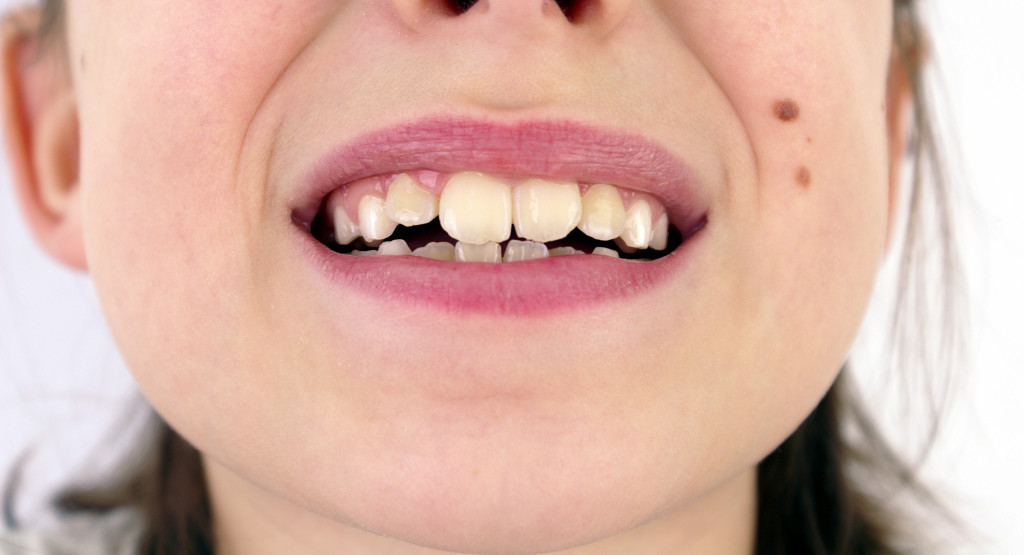Do you have an overbite? You’re not alone. In fact, according to the American Association of Orthodontists, it is a common concern among Americans. Many people are looking for ways to get rid of their overbite and achieve a better smile.
It’s not always easy to love your smile, especially if you have an overbite. You may feel self-conscious when you smile or laugh and wish you could do something to fix it. But don’t worry—there are ways to get rid of an overbite. With the right treatment plan, you can achieve a straighter, more symmetrical smile that you’re proud of.
What Is an Overbite?
An overbite is a type of misalignment of the teeth. The upper teeth stick out too far forward, causing them to overlap with the lower teeth. An overbite can be either genetic or caused by habits like thumb-sucking. It can also result from teeth that are too big for your jaw. So, if you have an overbite, you may want to consult an orthodontist to find out what the cause is and how it can be corrected.
There are three main types of overbites: dental and skeletal. Dental overbites are caused by the teeth, while skeletal overbites are caused by the jaw. The third type, a combined overbite, is caused by both the teeth and the jaw.
Dental overbites occur when the upper teeth stick out too far forward in relation to the lower teeth. This can be caused by several things, including:
- Teeth that are too big for your jaw
- Crowded teeth
- Missing lower teeth
- Teeth that are rotated or misaligned
Skeletal overbites occur when the upper jaw protrudes too far forward in relation to the lower jaw. This can be caused by some things, including:
- Genetics
- A bad bite (malocclusion)
- A misaligned jaw
If you’re not sure which type of overbite you have, your orthodontist will be able to tell you. They will also be able to develop a treatment plan to help correct your overbite and give you the smile you’ve always wanted.
Why Should You Fix an Overbite?
About 4.5 million Americans suffer from an overbite. While it isn’t usually painful, it can cause a number of problems, both cosmetic and functional. Here’s why you should consider fixing your overbite.
Speech Impediment
One of the most common problems caused by an overbite is referred to as “speech impediment.” This occurs when the overbite prevents the tongue from moving freely, which can affect your ability to speak clearly. In addition to speech problems, an overbite can lead to jaw pain and headaches. It can even make it difficult to chew properly, which can lead to indigestion and other digestive problems.

Embarrassing for Some
Cosmetic concerns are another common problem associated with an overbite. Because the upper teeth extend beyond the lower teeth, they are more visible when you talk or smile. This can be a source of embarrassment for many people who suffer from this condition.
Teeth Wear and Tear
In addition to these problems, an overbite can also lead to tooth wear and tear. When the upper teeth protrude beyond the lower teeth, they rub against the lower teeth every time you close your mouth. This friction can eventually wear away at the enamel on your teeth, leading to tooth sensitivity and even cavities.
Treatment Options for an Overbite
The good news is that there are different treatment options for an overbite. Which one is right for you will depend on the severity of your overbite and your budget. Here are a few popular treatment options:
Braces
Braces are one of the most common treatments for an overbite. They work by slowly shifting your teeth into their proper positions. They might hurt a bit at first, but you’ll get used to them after a while. Getting these can take anywhere from a few months to a few years, depending on the severity of your overbite.
Surgery
In severe cases, jaw surgery may be necessary to correct an overbite. This is usually a last resort, as it is both expensive and invasive. However, in some cases, it may be the only way to correct the problem. The surgery will involve breaking and resetting the bones in your jaw. It’s a pretty serious procedure, so you’ll need to be sure that you’re ready for it before you go ahead with it.
Prevention
The best way to prevent an overbite is to practice good oral hygiene habits. This means brushing and flossing your teeth regularly and visiting your dentist for regular checkups. In addition, if you have children, it’s important to monitor their oral health closely. If you notice that their teeth are not growing in properly, make an appointment with their dentist right away.
An overbite is a dental condition that affects millions of Americans. While it’s not usually painful, it can cause several problems, both cosmetic and functional. If you have an overbite, talk to your dentist about treatment options that are right for you.



